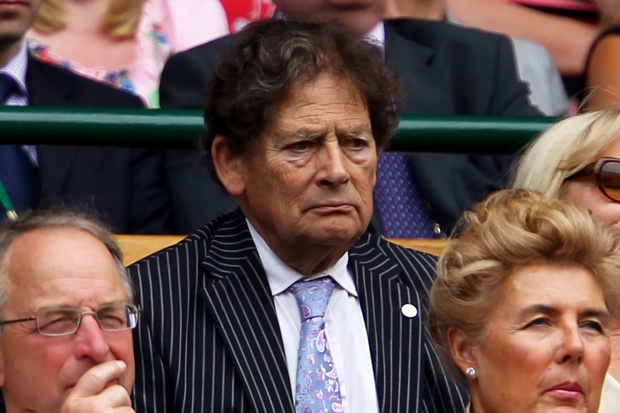It is only a matter of time before Nigel Lawson — if he is allowed on the BBC at all — has to have his words spoken by an actor in the manner of Gerry Adams at the height of the IRA’s bombing campaign during the 1980s. In the case of Mr Adams, whose voice was banned from the airwaves by the government, the BBC stood up for free speech. But it is quite a different story with Lord Lawson. The BBC has effectively banned the former chancellor (and former editor of this magazine) from appearing on its programmes to debate climate change, unless he is introduced with a statement discrediting his views.
The BBC’s Editorial Complaints Department this week ruled that the Today programme broke BBC guidelines in February by inviting Lord Lawson to a debate with Sir Brian Hoskins, chairman of the Grantham Institute for Climate Change. It bizarrely claimed that his views are ‘not supported by the evidence’ — though he had pointed out, correctly, that the planet has not been warming for the past 17 years. Nevertheless, the BBC politburo warned, listeners should have been warned that Lord Lawson is in a minority and, therefore, his words ‘should not be regarded as carrying equal weight to those of experts such as Sir Brian Hoskins’.
Lord Lawson is, of course, not a scientist. But a great many people speak on the BBC on subjects in which they do not have any formal qualifications: Al Gore, for example. Or Rajendra Pachauri, a railway engineer by training, who now runs the Intergovernmental Panel for Climate Change (IPCC). Neither does the BBC seem to be worried about non-scientists addressing scientific issues when it comes to such things as fracking or GM crops, on which any green activists are welcome to speak, however bizarre their scaremongering theories.
What Lord Lawson is, however, is chairman of the Global Warming Policy Foundation (GWPF), a think-tank that has no quarrel with the idea of global warming. Its aim is to appeal to reason, and to engage in mature argument rather than hysteria. Lord Lawson is advised by scientists who until recently included Lennart Bengtsson, a research fellow at the University of Reading. Professor Bengtsson was hounded off the GWPF board by his fellow scientists.
When people try to close down debate rather than engage with it, there is a pretty clear conclusion to be drawn: they lack confidence in their own case. The suppression of debate was shown again this week when Vladimir Semonov, a climate scientist at the Geomar Institute in Kiel, Germany, revealed that a paper he wrote in 2009 questioning the accuracy of climate models used by the Intergovernmental Panel on Climate Change was effectively censored by the scientist to whom it was sent for review. Their reasons for demanding passages be removed seems rather less than scientifically rigorous: one wrote that the offending material would ‘lead to unnecessary confusion in the climate science community’ and another said that ‘this entire discussion has to disappear’.
The process of peer review used in the scientific press is often held up as a mark of quality, which enables poorly conducted scientific research to be weeded out before it reaches the eyes of readers less qualified to judge the rigour of the work. This may to some extent be true, even if peer review failed to spot weaknesses in the now discredited Fleischmann-Pons cold fusion experiments of 1989 or stop the MMR scare.
But the peer review process is also open to abuse. Just as the social sciences became infected by political correctness 20 years ago, climate science has become governed by climatic correctness. To question the consensus that the world is facing fire and tempest as a result of anthropocentric global warming is, in the eyes of some working in the field, simply not allowable. That is something which was revealed in the Climategate scandal of 2009 when leaked emails from the University of East Anglia caught out scientists who had been withholding data, trying to keep rivals’ papers out of journals and in one case threatening violence against a sceptical scientist.
The BBC at first declined to go into the content of the emails, preferring to treat the story as a case of data theft. The fact that the emails contained material of extreme public interest seemed to count for nothing. The unknown individuals who leaked the emails can only dream of the hero worship afforded to Edward Snowden and Julian Assange; attitudes on the left towards release of information seem to swing dramatically depending on what information is being released.
The same is true of the BBC’s attitude towards balanced debate — something which is supposed to be guaranteed by its charter. The BBC has decided that it is allowable to debate such issues as whether benefit cuts are causing distress or whether sports-women are being discriminated against by male-dominated bastions — something the Today programme does virtually every morning. But dare to question whether it is wise for the country to embark on the economic experiment of abandoning fossil fuel on the back of some far-from-robust scientific models, and you will have to find another media outlet.






Comments